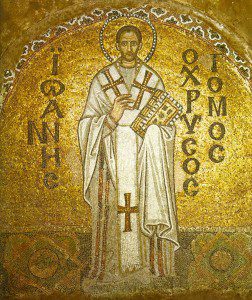
In the third volume of Capital, put together and published by Engels in 1894, we find Marx citing M. Luther.
We find the Marx’s lengthy Luther quote in part IV, ch. 20. Reading Marx, I cannot help but think of Proudhon’s “La propriété, c’est le vol!” Luther is cited in the middle of the following sentence:
“Commercial capital, when it holds a dominant position, is thus in all cases a system of plunder, just as its development in the trading peoples of both ancient and modern times is directly bound up with violent plunder, piracy, the taking of slaves and subjugation of colonies….”
This system of plunder, rebuked by Proudhon, Marx, and Christian thinkers throughout the ages, nonetheless finds itself crystalized in “the American way” – both throughout the continent via the expansion of Christendom beginning with C. Columbus and via the United States of America, the Empire of the West.
Here’s what Marx quotes from Luther as he rips capitalism:
“Now there is among merchants much complaint about the nobles, or robbers, because they must trade under great danger and run the risk of being kidnapped, beaten, blackmailed, and robbed. If they would suffer these things for the sake of justice, the merchants would be saintly people…. But since such great wrong and unchristian thievery and robbery are committed all over the world by merchants, and even among themselves, is it any wonder that God should procure that such great wealth, gained by wrong, should again be lost or stolen, and they themselves be hit over the head or made prisoner? … And the princes should punish such unjust bargains with due rigour and take care that their subjects shall not be so outrageously abused by merchants. Because they fail to do so, God employs knights and robbers, and punishes the merchants through them for the wrongs they committed, and uses them as his devils, just as he plagues Egypt and all the world with devils, or destroys through enemies. He thus pits one against the other, without thereby insinuating that knights are any the less robbers than merchants, although the merchants daily rob the whole world, while a knight may rob one or two once or twice a year.” “Go by the word of Isaiah: Thy princes have become the companions of robbers. For they hang the thieves, who have stolen a gulden or a half gulden, but they associate with those, who rob all the world and steal with greater assurance than all others, so that the proverb remains true: Big thieves hang little thieves; and as the Roman senator Cato said: Mean thieves lie in prisons and stocks, but public thieves are clothed in gold and silks. But what will God say finally? He will do as he said to Ezekiel; he will amalgamate princes and merchants, one thief with another, like lead and iron, as when a city burns down, leaving neither princes nor merchants.” (Martin Luther, Von Kaufshandlung und Wucher, 1524, S. 296-97.)

from the Hagia Sophia. / Public Domain
But that virtue’s yoke is sweet and light, is manifest many other ways also; but to conclude, if you please, let us look also at the burdens of sin. Let us then bring forward the covetous, the retailers and second-hand dealers in shameless bargains. What now could be a heavier burden than such transactions? how many sorrows, how many anxieties, how many disappointments, how many dangers, how many plots and wars, daily spring up from these gains? how many troubles and disturbances? For as one can never see the sea without waves, so neither such a soul without anxiety, and despondency, and fear, and disturbance; yea, the second overtakes the first, and again others come up, and when these are not yet ceased, others come to a head.
Capitalism, as we have said, is not compatible with a way of living that respects the dignity of persons – the Catholic tradition has maintained this for quite a while, and non-Catholics can see this, too.
Many see Francis (the Bishop of Rome and, as a result, Pope) as some radical. This is true in a way people who consider him being a radical wouldn’t understand. What I mean is this: Francis is a radical Catholic insofar as we consider radical to signify (radix) going back to the origin, the essential, the roots of Catholicism, where we find the many great Saints who embodied ortho-praxis, the way of love.
Until next time,












